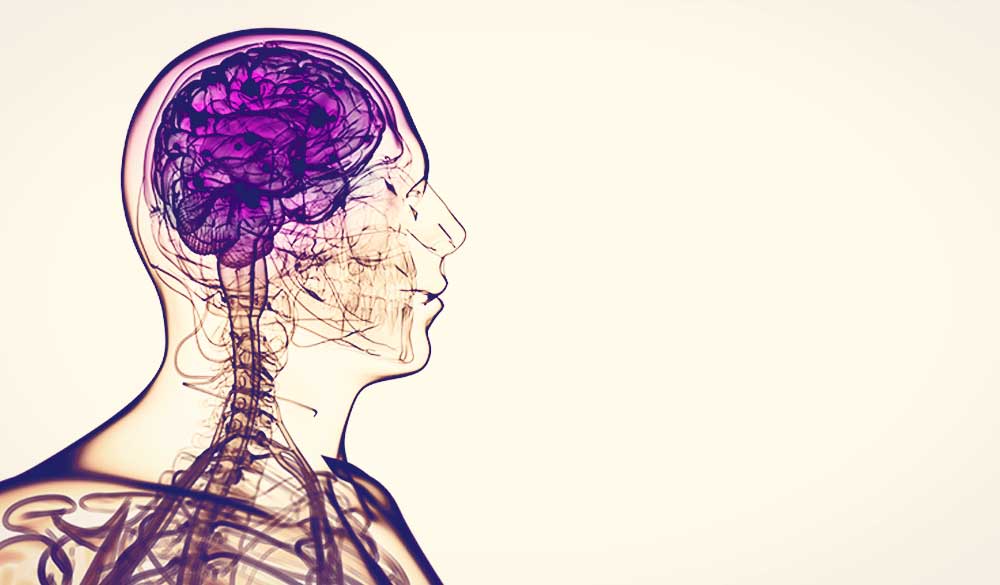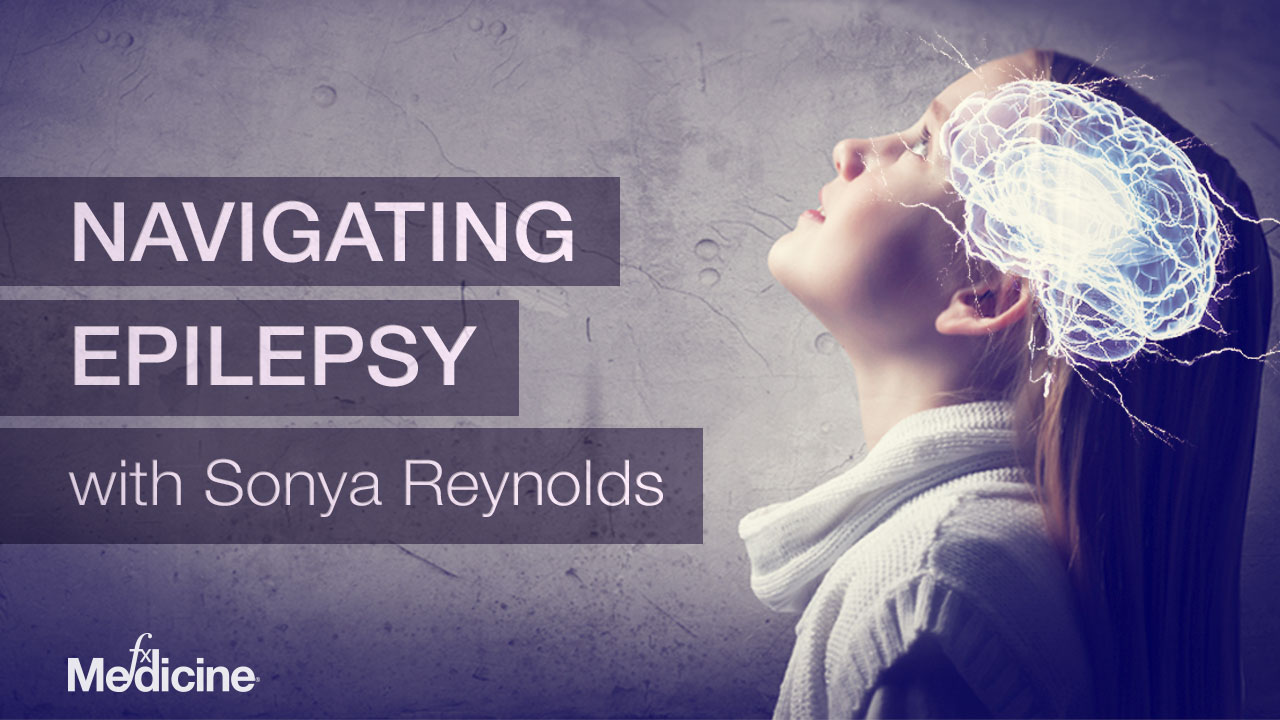When people hear the word epilepsy, they may immediately think of a person having a seizure, but what is the actual definition of epilepsy? Epilepsy comes from the greek word epilepsia meaning to ‘take hold’ or ‘to seize’.[1]
The Epilepsy Foundation states that epilepsy is a “disease characterised by an enduring predisposition to generate epileptic seizures and by the neurobiological, cognitive, psychological and social consequences of this condition.” Therefore, a seizure is an event and epilepsy is the disease.[2]
You may wonder what food has to do with epilepsy and, interestingly, as far back as the fifth century, Hippocrates wrote about using fasting as a way of managing epilepsy. So the idea of mimicking fasting to reduce seizures is not a new one.[3]
What influence may someone’s diet have on epilepsy?
It has been hypothesised that seizures may be associated with allergy.[4] Further research is warranted, however if other signs and symptoms of allergies or intolerances are present, such as headaches and abdominal pain, then the suspected food should be removed. This would be best undertaken with a qualified healthcare practitioner.
A small but effective study demonstrated that children with epilepsy displayed a “significantly higher incidence” of allergy to cow’s milk than controls, with Prick tests for cow’s milk protein also showing a higher rate of positive results in the paediatric epileptic patients.[5]
An option for parents is to remove dairy and see if there is a reduction in overall seizures, replacing with dairy alternatives such as coconut, oat and rice milk. Ghee could also be an option as it does not contain the protein portion of dairy.
Coeliac disease
The prevalence of coeliac disease has been found to be higher in patients with epilepsy than in controls.[4]
However, it has been noted that a gluten-free diet only beneficially affected the course of epilepsy when started soon after epilepsy onset, so introduction to a gluten-free diet would be beneficial in the early stages of epilepsy diagnosis.[4]
MSG and Aspartame
The evidence for removing artificial flavouring and sweeteners such as aspartame and monosodium glutamate (MSG) has had varying results, with some researchers suggesting that the reason the evidence has variations (in the case of aspartame specifically) is the fact that when the manufacturer of the ingredient funds the research, the research is more favourable for the ingredient safety.[6] The take-home message for aspartame consumption is, those who are vulnerable such as those who experience seizures, should be more cautious of their usage of aspartame. Further from this, there needs to be long term clinical trials on humans rather than animal studies.[6]
MSG has been shown to increase oxidative stress in the brains of rats and a rise in plasma glutamate,[7,8] and therefore caution should be used in the indiscriminate usage of MSG.
What other proven dietary changes can you make for epilepsy?
There are a number of severe childhood epilepsies including West Syndrome, Lennox-Gastaut syndrome, and myoclonic-astatic epilepsy (Doose syndrome). These conditions can be resistant to multiple drug therapies and have the added issue of potential toxic effects of using multiple drug therapies. These conditions pose a variety of issues including “higher rates of mortality, developmental delays and/or regressions and cognitive impairment”.[9] There are certain individuals who do not respond to multiple drug therapies and these patients are usually described as having refractory epilepsy.
Ketosis is an important concept for those with refractory epilepsy with diet therapy from a ketogenic diet (KD) or modified Atkins diet (MAD) consistently showing “efficacy of greater than 50% seizure reduction in 30-50% of patients sustained over long term follow-up”.[10]
The KD mimics the body’s response to fasting; in the absence of an adequate carbohydrate source, the body utilises fat as a primary energy source.[11]
There are multiple hypothesised mechanisms of action for how ketosis benefits the brain including the acidification ketone bodies exert on the nervous system. These ketones help to “normalise nerve conductivity, irritability and membrane permeability”. Another possibility is that ketones augment ATP production by utilising ketone bodies in place of glucose.[1]
What does a ketogenic diet look like?
The classic KD is defined as limiting carbohydrate and protein intake to no more than 10% of the diet, with fat taking up 90%.[1] This is an intensive diet which is strictly monitored by health professionals. The main side effects of a KD are constipation and lethargy.[12]
An alternative to the KD is a MAD, which does not overly restrict protein intake and makes it a more manageable long-term option for patients.
Another option is to utilise medium chain triglycerides (MCTs) as the source of fat. Due to the fact that MCTs are more easily converted in to ketones in the body than long chain triglycerides (LCTs), patients may experience the benefits of ketosis more quickly. Plus the inclusion of the MCTs allows for enhanced palatability of the diet with the composition of the diet changing to a higher content of protein and carbohydrates.[12]
MCTs could be an inclusion in both the KD and the MAD. It is a clear, odourless liquid that can be easily added to foods.
With a growing interest in the gut-brain connection, it’s not a surprise that people are looking at the diet as part of epilepsy treatment. With diagnosis of epilepsy, it should be encouraged to test for known allergens such as dairy and gluten, particularly if there are other signs and symptoms of an allergy or intolerance present.
The evidence is strong for following a KD for those patients with drug-resistant epilepsy. Unfortunately, long-term compliance can be an issue, so the MAD and use of MCTs may offer a manageable solution.
References
- Pizzorno J, Murray M. Textbook of natural medicine. Fourth edition. London: Churchill Livingstone Elsevier, 2013.
- Fischer RS. A revised definition of epilepsy. Epilepsy Foundation 2014. Viewed 1 March 2017, http://www.epilepsy.com/article/2014/4/revised-definition-epilepsy
- Felton E, Cervenka M. Dietary therapy is the best option for refractory nonsurgical epilepsy. Epilepsy 2015;56(9):1325-1329. [Full text]
- Asadi-Pooya AA, Mintzer S, Sperling MR. Nutritional supplements, foods, and epilepsy: Is there a relationship? Epilepsia 2008;49(11):1819-1827. [Full text]
- Frediani T, Lucarelli S, Pelliccia A, et al. Allergy and childhood epilepsy: a close relationship? Acta Neurologica Scandinavia 2001:104:349-352. [Full text]
- Maher T, Wurtman R. Possible neurologic effects of aspartame, a widely used food additive. Environmental Health Perspectives 1987;75:53-57. [Full text]
- Gao J, Wu J, Zhao XN, et al. [Transplacental neurotoxic effects of monosodium glutamate on structures and functions of specific brain areas of filial mice]. Sheng Li Xue Bao 1994;46(1):44-51. [Abstract]
- Onaolapo OJ, Onaolapo AY, Akanmu MA, et al. Evidence of alterations in brain structure and antioxidant status following 'low-dose' monosodium glutamate ingestion. Pathophysiology 2016;23(3):147-156. [Full text]
- Sharma S, Jain P. The modified Atkins diet in refractory epilepsy. Epilepsy Res Treat 2014;2014:404202. [Full text]
- Kim JA, Yoon J-R, Lee EJ, et al. Efficacy of the classic ketogenic and the modified Atkins diets in refractory childhood epilepsy. Epilepsia 2016;57:51-58. [Full text]
- Misiewicz Runyon A, So T. The use of ketogenic diet in pediatric patients with epilepsy. ISRN Pediatr 2012;2012:263139. [Full text]
- Branco A, Ferreira A, Simoes R, et al. Ketogenic diets: from cancer to mitochondrial diseases and beyond. Europ J Clin Invest 2016;46(3):285-298. [Abstract]
Find Sonya on the FX Medicine Podcast talking about Epilepsy
DISCLAIMER:
The information provided on FX Medicine is for educational and informational purposes only. The information provided on this site is not, nor is it intended to be, a substitute for professional advice or care. Please seek the advice of a qualified health care professional in the event something you have read here raises questions or concerns regarding your health.






